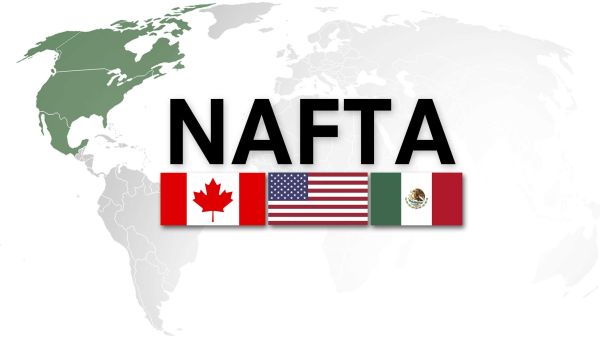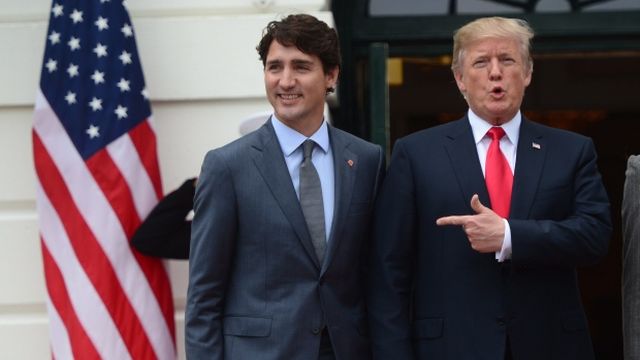
by Editor | May 25, 2021 | World
 NAFTAMexico City : Mexican negotiators in North America Free Trade Agreement (Nafta) talks will defend the country’s stance on maintaining current automotive rules of origin requirements, an official has said.
NAFTAMexico City : Mexican negotiators in North America Free Trade Agreement (Nafta) talks will defend the country’s stance on maintaining current automotive rules of origin requirements, an official has said.
Eduardo Solis, president of the Mexican Automotive Industry Association (AMIA), on Wednesday, said: “Our proposal is unique and we are not preparing any other.”
Solis was speaking at a press conference after revealing Mexico’s automotive statistics for October, Xinhua news agency reported.
Negotiators from Canada, Mexico and the US will meet here from November 17 to 21 for the fifth round of Nafta renegotiation talks, which is set to tackle some of the most controversial topics.
The fourth round finished in Washington on October 17, with new challenges facing Canada and Mexico over differences concerning US proposals.
In terms of automotive rules of origin, Mexico and Canada have stood firm on their desire to maintain them at their current levels, 62.5 per cent for vehicles and 60 per cent for autoparts.
However, the American government is seeking to raise this to 85 per cent, including 50 per cent reserved for the US.
Solis said the US demands were “unacceptable”, and said that current levels had proven to be successful for all three Nafta partners.
Besides rules of origin, the fifth round will tackle other hard topics such as local content for the textile industry, government purchasing, agricultural trade and the elimination of a chapter on dispute resolution.
“It seems to me that the serious negotiation is just starting,” explained the AMIA chief.
Mexico, Canada and the US have been renegotiating Nafta since August, at the request of US President Donald Trump, who feels the agreement has hurt American interests.
—IANS

by Editor | May 25, 2021 | World
 Mexico City : US withdrawal from the North American Free Trade Agreement (NAFTA) will lead to even slower growth for Mexico’s economy, credit rating agency Fitch has said.
Mexico City : US withdrawal from the North American Free Trade Agreement (NAFTA) will lead to even slower growth for Mexico’s economy, credit rating agency Fitch has said.
“If the US withdrew from NAFTA, the Mexican economy would face significant uncertainty, which would likely lead to an immediate confidence shock and short-term market volatility,” the agency said on Monday in a report titled “How NAFTA Abrogation Would Affect Mexico”, Xinhua reported.
“Growth would slow through the medium term, from an already modest base,” with a negative impact on productivity “affecting potential growth rates through the medium and long term,” said the agency.
The forecast comes after a fourth round of talks aimed at modernizing the two-decade trade deal ended with “growing uncertainty” as to whether the three NAFTA members, Mexico, the US and Canada, will successfully renegotiate the accord.
One of the more immediate effects of ending NAFTA would be the application of higher tariffs on Mexican exports, especially autos and manufactured goods, the report noted.
The peso, which has already taken a hit from the uncertainty surrounding the renegotiation, is “highly likely” to depreciate further, the agency said, though it predicted that would “also enhance competitiveness of export-oriented industries” in Mexico.
—IANS

by Editor | May 25, 2021 | World
 Mexico City : The recent pressure on the value of the Mexican peso is, at least in part, due to the uncertainty surrounding the NAFTA renegotiations, said Finance Minister Jose Antonio Meade.
Mexico City : The recent pressure on the value of the Mexican peso is, at least in part, due to the uncertainty surrounding the NAFTA renegotiations, said Finance Minister Jose Antonio Meade.
“The markets consider that, in the absence of a treaty, there has be a real adjustment in the exchange rate, which pressures us in consequence,” Xinhua quoted Meade as saying at a business forum on Monday.
The Mexican peso opened on Monday at a high of 19.09 pesos to the USD, its highest rate in five months.
Another factor making investors nervous in Mexico is the expectation of a normalization of US monetary policy.
“Faced with these two elements that come from outside, what we can do is trying to exercise internal control. What we have…is the ability to steady our fiscal policy,” he added.
Concerning the North American Free Trade Agreement (NAFTA), Meade said the Mexican government’s central objective is to secure a good renegotiation, calling the differences between the US, Canada and Mexico as part of a “normal process”.
The fourth round of NAFTA talks is currently being held in the US, with differences beginning to become more pronounced.
Mexican Economy Minister Ildefonso Guajardo admitted earlier on Friday that conversations were going through a difficult time.
The US government is seeking to update the NAFTA, in force since 1994, with a number of demands, including a five-year expiration clause, the scrapping of a chapter on dispute resolution, and an increasing in rules of origin for the automotive and textile industries which Mexico and Canada oppose.
—IANS

by Editor | May 25, 2021 | World

U.S. President Donald Trump and Canadian Prime Minister Justin Trudeau
Washington : US President Donald Trump has said if talks to reform North American Free Trade Agreement (NAFTA) fail, he could envisage a US-Canada trade pact, excluding Mexico.
The US president said if there was no deal on the NAFTA, it would be terminated. He was speaking at the White House on Wednesday with visiting Canadian Prime Minister Justin Trudeau, BBC reported.
Replying to a question, Trump said he would consider a trade pact with Canada minus Mexico, adding that both the US and Canada wanted to protect their workers.
The current round of talks on renegotiating the trade bloc is reported to be stalling, with Mexico opposing a US move to increase the percentage of US-made components in car manufacturing.
Trump’s stance has, however, been criticised by US businesses.
Mexican Foreign Minister Luis Videgaray, speaking ahead of the latest round of talks, said terminating Nafta could harm US-Mexico relations and damage co-operation on issues like fighting drug-trafficking.
Trudeau said he believed the Nafta talks could still end in a “win, win, win”.
But he said Canada had to “be ready for anything” if the attempts to modernise the 23-year-old deal faltered.
Overall trade between the three Nafta partners reached $1.1 trillion in 2016.
American and Mexican officials say they want a re-negotiated deal by December.
This week the influential US Chamber of Commerce warned it was time to “ring alarm bells” over the NAFTA talks.
The business lobby group said there were “several poison pill proposals” put on the table by the US that could tank the renegotiations.
Those include US demands to adjust the rules of origin, which would increase the percentage of the content of car parts and other materials that would come from NAFTA countries in order for a good to qualify as duty free – a specific concern for the North American auto industry.
The US and Canadian leaders also discussed the Bombardier-Boeing trade dispute.
Canada and the UK are sparring with the US over Canadian aerospace giant Bombardier.
The Trump administration has imposed hefty duties on Bombardier’s C-Series jetliner.
American aerospace firm Boeing claims Bombardier received unfair government subsidies to produce its showcase passenger jet.
Bombardier is a significant employer in Northern Ireland and Canada.
Trudeau said he “highlighted to the president how much we disagree vehemently” on the decision to impose anti-dumping duties.
—IANS

by Editor | May 25, 2021 | World
 Mexico City : The Mexican peso could see its run of weak performances carry on due to uncertainty revolving around the North American Free Trade Agreement (NAFTA) renegotiations, said analysts on Friday.
Mexico City : The Mexican peso could see its run of weak performances carry on due to uncertainty revolving around the North American Free Trade Agreement (NAFTA) renegotiations, said analysts on Friday.
This week has seen the peso on a weak run unseen since June, reaching 18.62 pesos to the US dollar, due to strong economic data in the US, Xinhua quoted Gabriela Siller, Director of Economic and Financial Analysis at Banco Base.
Siller told Xinhua that the value of the peso could vary between 18.4 and 18.88 to the dollar in the coming days.
“Next week, the value of the pesos will remain vulnerable to losses against the dollar, especially given the news that what could come out of the fourth round of NAFTA renegotiations,” she said.
The Mexican business community has this week been nervous about the fact that Mexico could walk away from talks if it is faced with proposals from the United States and Canada that it sees as impossible to meet, added Siller.
Negotiations from all three countries will meet in Washington from October 11 to 15 for the fourth round of talks, which is likely to tackle thorny issues such as the US trade deficit and rules of origin.
Other factors are pressuring the peso, including the fact that Mexico could seek a “plan B,” which would mean scrapping NAFTA, the pillar of North American trade since 1994, said Pedro Tuesta, a Latin American economist from Continuum Economics.
—IANS

 NAFTAMexico City : Mexican negotiators in North America Free Trade Agreement (Nafta) talks will defend the country’s stance on maintaining current automotive rules of origin requirements, an official has said.
NAFTAMexico City : Mexican negotiators in North America Free Trade Agreement (Nafta) talks will defend the country’s stance on maintaining current automotive rules of origin requirements, an official has said.


